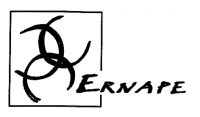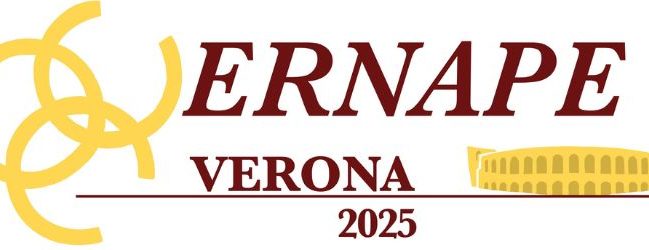University of Verona
Department of Human Sciences
June 4-6, 2025
Conference Theme
Educational Partnership between Families, Schools, and Communities
Weaving vibrant alliances to empower individuals and overcome collective vulnerabilities
The fragility inherent to human conditions seems obscured by the mass media subculture that insists on success and beauty in the service of neo-liberal consumerism. Yet, the reality of our daily life reminds us of the uncertainty of human existence.
In techno-liquid societies, the individualistic/narcissistic conception of autonomy – based on an idealisation of the individual as a subject capable of being self-sufficient – is intertwined with the demand for performance and efficiency placed on individuals. While the media narrative feeds the illusion of self-sufficiency, leaving individuals in the face of the fragilities of the naked life, it fails to adequately conceptualise the needs of people rooted in the socio-relational dimension.
To the constitutive fragility of our lives, which takes different forms (human nature, illness, and stages of life), is added collective vulnerability (social injustices like gender and ethnic/race segregation, poverty, natural disasters, etc.). Moreover, commonality (which is a democratic reality sine qua non) is also a fragile common good (Rosanvallon, 2013). In our society, anxiety and anguish over fears generated by the precariousness of existence, the perception of individual inadequacy, and the weakness of social ties across gender, generation, and class distinctions.
Fragilities and vulnerabilities have been amplified during COVID-19, worsening the living conditions of people around the world. During this period, there was a deepening divide in education access, increasing poverty and learning poverty and the risk of social inequality and exclusion (Save the Children, 2021; 2023). Lockdown policies actually “grounded” the most vulnerable parents (i.e., those from disadvantaged backgrounds, who work in the grey economy, single parents, …). What happened worldwide proved to us that to “flee fragility is impossible” (Bernard Ugeux, 2015).
The criticality of the existential condition is radical. For this reason, it is necessary to face the delicacy of life in its various forms without remaining bound only to negative dimensions of fragility. History teaches us that fragility and vulnerability inspired the struggle for equity and can lead to more authentic and solid social links. In this new context where state, socio-economic, and individual fragilities and collective vulnerabilities are gaining space, we aim to underline the essential role of collaboration among families, schools, and communities.
This alliance has become essential to fight the new and old individual fragilities and social vulnerabilities to develop a vibrant community and to promote well-being at school among all the actors (students, teachers, parents) to develop children’s capabilities and possibilities for a good life.
Fragility and vulnerability can be experienced as part of the educational process, both at the individual level and at the level of relationships between people (among peers or with teachers). However, unlike other areas of human experience, education is not only the context in which fragility and vulnerability are experienced, but education can also contribute to transforming exposure to fragility and vulnerability into an opportunity for growth and development. Through an alliance between parents, school and community, it is possible to convert fragility and vulnerability conditions into creative and revolutionary forces to fight for a better life and social justice.
Addressing issues of fragility and vulnerability related to human development, rights, and equity is the main road to building authentic social ties and working towards a collective transformation of society.
The organizer of the ERNAPE 2025 Conference encourages educators, researchers, and scholars from all over the world to address the challenges and opportunities that contemporary socio-economic, and cultural conditions of vulnerability and human frailty offer to open cracks in the neo-liberal system to enable quality socio-educational pathways to truly living for all.
This call invites scholars from educational sciences, psychology, sociology, philosophy, anthropology, political science, and other fields interested in family-school-community relationships to submit their papers and symposium proposals for ERNAPE2025, which will be held which will take place in Verona (Italy).
We welcome proposals that relate to the main conference theme, as well as proposals for contributions on all topics relevant to ERNAPE’s thematic and scientific interest.
Contributors may want to address any of the following thematic areas but are not restricted to these:
1. Paths to improve family-school-community relationships
- Theoretical Perspectives
- Projects, Practices, and Experiences
- Educational Policy at different levels (state, region, local)
2. Family-school relationships and disadvantaged/vulnerable groups/families
- Migrant/refugee families and children
- Socio-economic fragilities
- LGBQT+ families
- Ethnic minorities
3. Family and school professions fragilities
- Facing parents’/families’ fragilities
- Children’s and adolescents’ emotional and socio-relational education
- Teachers and school staff training and support
- Positive parenting initiatives and programs
4. Further thematic areas:
- Social media for family-school relationships: problems and suggested solutions
- Parents and teacher relationship in the context of inclusive and special education
- Parents’ Involvement in Higher Education
- Beyond parents and family relationships: grassroots movements, community activists, etc.
- Family-school-community partnerships in a post-COVID-19 era.
- Decolonising school-family relationship
Proposal submissions
The conference call for proposals will open on September 15, 2024, and close on January 12, 2025.
ERNAPE2025-Verona welcomes the following formats of presentations:
- Paper sessions
- Poster sessions
- Symposia
Participants are invited to hand in abstracts for papers, posters and symposia. For more information, see below.
All proposals for papers, posters, and symposia are submitted online.
In the abstract submission, the author will be asked to specify which topic at ERNAPE-Verona the author wants to present a paper on. The scientific committee does, however, reserve the right to assign papers to another session as it best sees fit.
| Paper sessions | Symposia |
| Paper sessions are 20 minutes in total for each paper. Each presentation consists of oral presentations that last approximately 10-15 minutes, followed by 5-10 minutes for questions. Paper presentations will be scheduled in 90-minute sessions, usually including four papers on similar topics (in sessions with three papers, each paper will be 25 minutes). There will be a chairperson for each session who will take care of time and manage the discussion. ERNAPE2025-Verona nominates the chairperson. | Symposia consist of a 90-minute session organised by the submitters. A symposium session includes 3/5 papers plus a discussant. The symposium needs to be handed in as one submission with a description of the symposium (500 words) and a list of all abstracts for all papers linked to it (200 words abstract per paper). The proposer appoints a chairperson and a discussant, which must be named in the proposal. The discussant’s role is to read all abstracts ahead of the symposium and reflect on the symposium as a whole. |
| Poster sessions | Full papers |
| Posters are graphical presentations displayed during the conference and discussed in a special Poster Session. Presenters will be asked to be available at the Poster session to answer questions from other conference delegates. Posters should be prepared for the Conference in A1/portrait (upright). | ERNAPE-VERONA invites participants to submit full papers to be reviewed for publication in The International Journal about Parents in Education (IJPE). Full papers will also be presented in the paper sessions and symposia. |
Further guidelines for submitting a full paper
ERNAPE-VERONA 2025 invites participants to submit full papers to be reviewed for publication in The International Journal about Parents in Education (IJPE). Full papers will also be presented during the poster session, paper sessions, and symposia.
When you submit an abstract for a poster, a paper, or a symposium, you may be asked whether you would like to submit a full paper for publication in the IJPE. In that case, you will receive further guidelines from the IJPE editors.
Below, we report the publication timeline:
Step 1: Submission of first drafts (by authors) by July 20, 2025
Step 2: Reviewers’ feedback by September 30, 2025
Step 3: Submission of revised contributions (by authors) by November 10, 2025
Step 4: Final editorial decision by December 01, 2025
Step 5: Publication of the journal issue will be 40 days after the editorial decision (around January 15, 2026)


